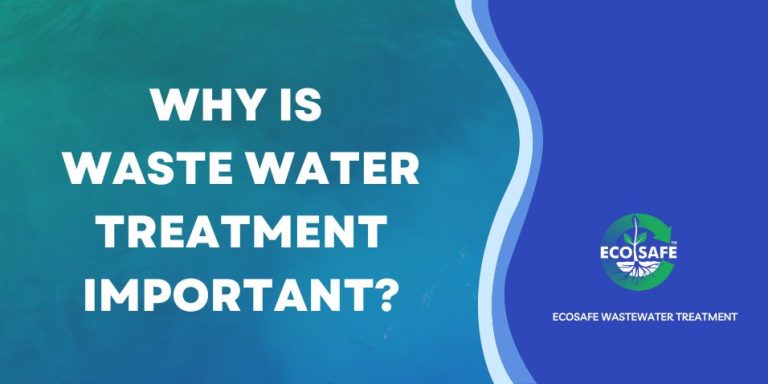Reclaim Waste Fundamentals Explained
Reclaim Waste Fundamentals Explained
Blog Article
Reclaim Waste - Questions
Table of ContentsThe 20-Second Trick For Reclaim WasteA Biased View of Reclaim WasteWhat Does Reclaim Waste Mean?Things about Reclaim Waste8 Simple Techniques For Reclaim Waste
Explore the kinds, events, and types of liquid waste. Residential sewage waste refers to the waste and items from a property septic tank. This kind of waste is developed by human beings in residences, institutions, and other buildings. This only includes septic systems that have a drainpipe field. The appropriate administration and disposal of residential sewage waste need liquid waste to be moved to a sewer therapy plant where the correct techniques and equipment are put on cleanse and throw away waste.
Commercial waste usually includes possible risks, such as flammable products or a mix of liquid and solid waste items, and requires an extra advanced and thorough disposal procedure. The disposal of commercial waste usually entails the purification of waste prior to transportation to make sure secure and proper disposal. Hazardous waste is created from by-products and runoff of commercial processes and production.
This kind of waste can not utilize the same sewage administration transport or processes as septic or business fluids. The hazardous waste management procedure calls for the inspection and testing of liquid waste before it undertakes the disposal process (industrial wastewater treatment). Drainage waste is the liquid waste that comes from overflow and excess stormwater in very populated areas or cities
Runoff waste can cause contamination and flooding if not handled appropriately. Discover more regarding sewer cleansing and waste administration. Ensuring proper waste monitoring can avoid calamities and lower environmental injury. Both individuals in residential settings and specialists in business or manufacturing sectors can benefit from understanding the processes and laws of liquid waste management.
The Ultimate Guide To Reclaim Waste
Contact PROS Providers today to discover our waste monitoring and disposal solutions and the proper methods to take care of the liquid waste you generate.
(https://www.pubpub.org/user/leon-aube)Do you understand what takes place to your water when you end, flush the toilet or drain pipes the washing maker? No? Well, it's worth knowing. This supposed 'wastewater' is not only an important resource but, after treatment, will certainly be released to our land, waterways or the sea. Utilized water from commodes, showers, bathrooms, kitchen sinks, laundries and industrial procedures is known as wastewater.

water made use of to cool equipment or clean plant and equipment). Stormwater, a kind of wastewater, is drainage that streams from farming and urban locations such as roofs, parks, gardens, roads, courses and rain gutters right into stormwater drains pipes, after rain. Stormwater moves without treatment straight to regional creeks or rivers, ultimately getting to the ocean.
The smart Trick of Reclaim Waste That Nobody is Talking About
In Queensland, the majority of wastewater is dealt with at sewage therapy plants. Wastewater is transported from domestic or industrial websites through a system of drains and pump stations, known as sewage reticulation, to a sewer treatment plant.
The Department of Natural Resources encourages local federal governments concerning handling, operating and preserving sewage systems and therapy plants. In unsewered locations, city governments might require owners to set up private or family sewer therapy systems to deal with residential wastewater from bathrooms, cooking areas, washrooms and laundries. The Division of Natural Resources authorises making use of house systems when they are verified to be effective.
Many stormwater receives no treatment. In some new neighborhoods, treatment of some stormwater to remove litter, sand and crushed rock has begun using gross toxin traps. Wastewater treatment occurs in 4 stages: Gets rid of solid issue. Larger solids, such as plastics and other objects incorrectly released to sewage systems, are eliminated when wastewater is gone through screens.
Makes use of small living organisms recognizes as micro-organisms to damage down and get rid of staying liquified wastes and great particles. Micro-organisms and wastes are integrated in the sludge.
Getting The Reclaim Waste To Work
Nutrient removal is not readily available at all sewage therapy plants because it calls for expensive specialised tools. Clear fluid effluent produced after therapy may still contain disease-causing micro-organisms - liquid waste removal melbourne.

This typically means wastewater needs to be treated or pollutants eliminated before it can be released to waterways. Most wastewater moves into the sewage system. Under the Act, neighborhood governments carry out authorizations and licences for environmentally pertinent tasks (Periods) entailing wastewater releases that could have a local impact. The department carries out authorizations and licences to ERAs involving wastewater launches that might have a local or statewide impact.
The Basic Principles Of Reclaim Waste
Or else, examples are considered research laboratory analysis. Frequently many examinations are needed to develop the degrees of each of the different toxins such as oils, hefty steels and chemicals in water. Monitoring offers valid information concerning water top quality and can validate that licence problems are being satisfied. The info gotten via tracking offers the basis for making water top quality choices.
Report this page